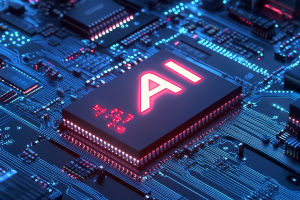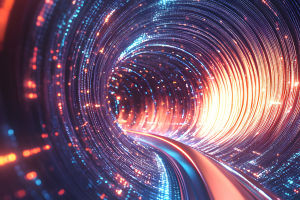Ever had that feeling that something's just… off? Like reality might not be all it seems?
Whether it's déjà vu or digital déjà vu (think "The Matrix"), the notion that our universe is a computer simulation has evolved from cult movie concept to serious scientific and philosophical inquiry.
The Simulation Hypothesis isn't just late-night speculation—it's a question some of our brightest minds actively wrestle with. So, how do experts tackle the possibility that your life, memories, and even these words might be rendered lines of code?
What's the Simulation Hypothesis, Anyway?
The Simulation Hypothesis argues we might inhabit a reality generated by a computer so powerful that we—and everything we perceive—are, in effect, digital constructs. Philosopher Nick Bostrom sharpened this idea: if advanced civilizations eventually learn to simulate intelligent life, and if they run countless simulations, the odds suggest we're more likely to be simulated beings than originals.
It's a provocative twist on age-old philosophical questions—Plato's Allegory of the Cave, for instance, or Descartes' skepticism about perception—blending tech advances with perennial existential puzzles.
Science and Simulation: Is Reality "Pixelated"?
• Physics meets bits
• Quantum clues
• Testing the code
Scientists have noticed that the universe seems to have a minimum "resolution," much like pixels on a screen. Theories in quantum mechanics suggest energy, length, and time can't be divided endlessly—there are actual lowest possible units.
This "pixelation" mirrors information processing in computers, where data are ultimately broken into basic, indivisible bits. Some researchers hypothesize that if the universe were a simulation, it might display such digital features, giving us an unexpected window into our system's operating rules.
For example, rigorous studies even try to detect "artifacts" in reality—like glitches or patterns one wouldn't expect in a smooth, continuous world. Theoretical proposals include examining cosmic rays for evidence of discrete structures in space-time, which could resemble the boundaries in computer simulations. So far, no such definitive evidence has been found, but the search continues.
Obstacles and Skepticism: Limits of Simulating the Cosmos
• Mind-bending energy costs
• Computational overload
• The "falsifiability" problem
While the simulation scenario can dazzle the imagination, scientific scrutiny throws up big hurdles. First, physically simulating an entire universe would demand colossal, almost unimaginable computing resources—more energy than may exist in the universe itself.
Recent astrophysical research calculates that for our reality (with all its complexity and detail) to be simulated at every level, the required energy and data storage is likely unattainable, even for super-advanced "posthuman" civilizations.
And there's a core scientific issue: the Simulation Hypothesis is, by design, hard to prove or disprove. Any "evidence" we find could, skeptics argue, itself be planted by the simulation. This slippery, self-referential logic undermines the idea's status as a testable scientific hypothesis, leading some critics to call it more metaphysics than hard science.
Implications: Free Will, Consciousness, and Meaning
Suppose for a moment we are living in a simulation—how would that shape our sense of free will? Some theorists speculate that if our "choices" are coded, genuine agency might be an illusion.
Others counter: does it matter, as long as our experiences and emotions feel real to us? The debate spills into deep waters—what defines consciousness, what gives life meaning, and would it change anything about our relationships or values if they're run on a cosmic server farm?.
So… Are We Actually in a Simulation?
At this point, there's no solid proof for or against the Simulation Hypothesis. Science keeps pushing the boundaries of what can be tested, while philosophy keeps questioning what can be known. Recent studies from quantum physics and information theory point to curious similarities between how our universe works and how advanced simulations might be structured—but no "hard evidence" code glitches or cosmic error messages have popped up.
And so, we're left in the ultimate mystery box: if we're simulated, can we ever know for sure? Does knowing (or not knowing) change anything about how we live day-to-day, love our friends, or chase our dreams?
If you could peek "behind the curtain" and see the real source code, would you want to? Or is ordinary, lived experience—real or virtual—enough to make your reality meaningful? Share your take: is simulation just science fiction, or the next big scientific revolution waiting to happen?


